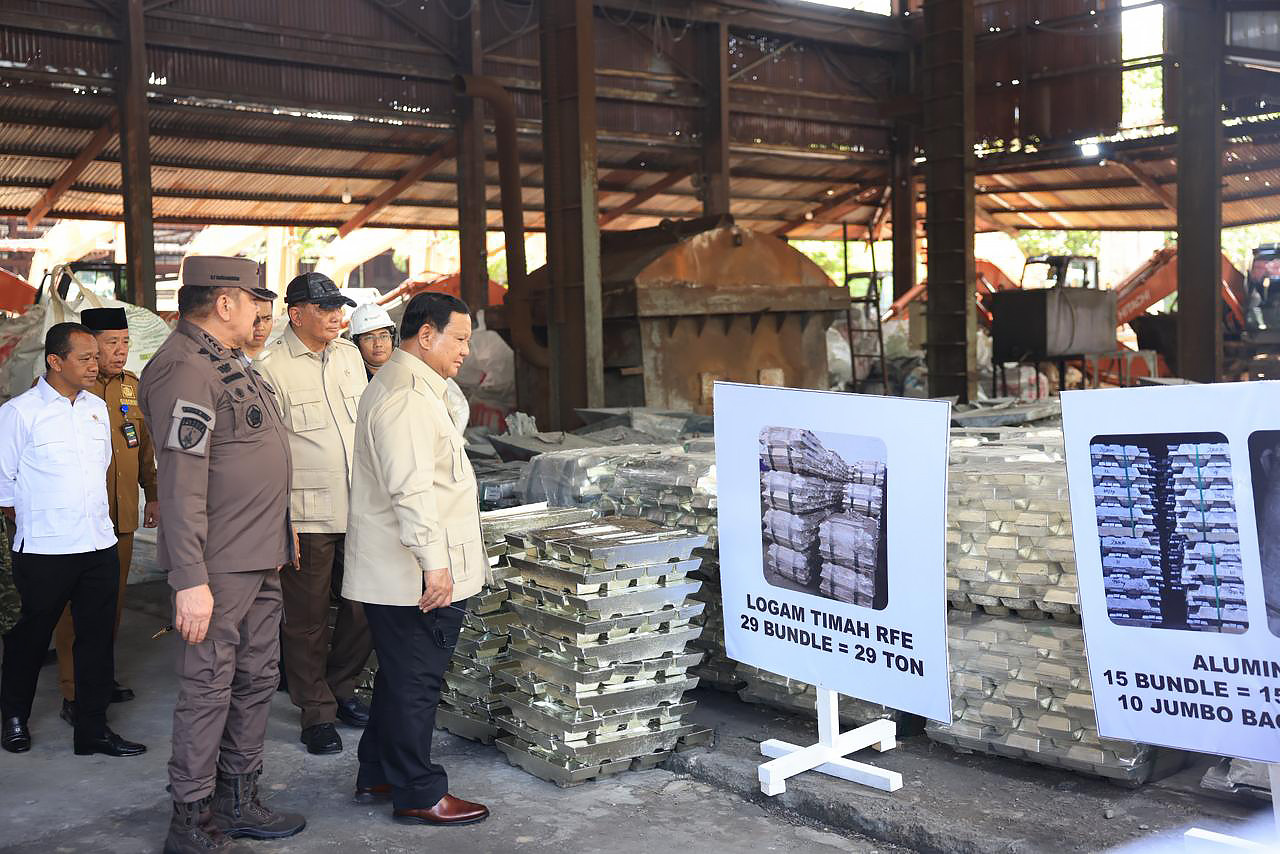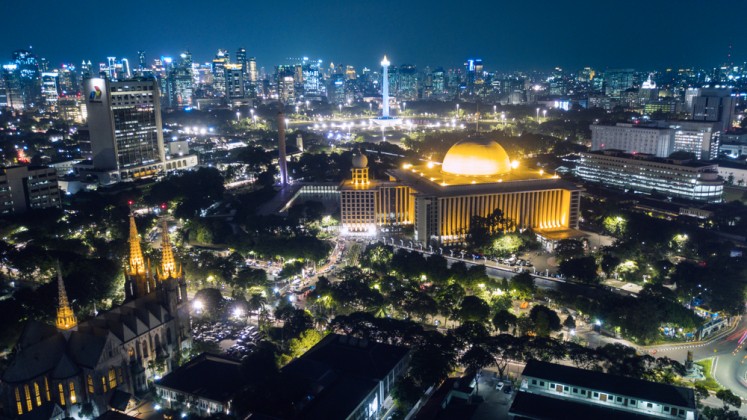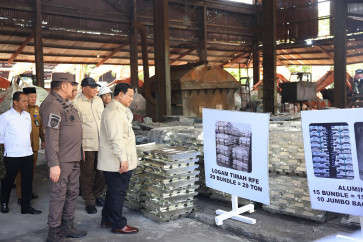Popular Reads
Top Results
Can't find what you're looking for?
View all search resultsPopular Reads
Top Results
Can't find what you're looking for?
View all search resultsThird-quarter tin exports jump 25.8 percent on stronger output, higher prices
At a House meeting on Tuesday, industry association AETI and state miner Timah urged better enforcement of existing policies to improve governance and boost revenue from the critical mineral.
Change text size
Gift Premium Articles
to Anyone
 President Prabowo Subianto (second left, front) makes an inspection visit to the Bangka Belitung Islands on Oct. 6, 2025, prior to the handover of seized tin ingots worth up to Rp 7 trillion (US$422 million) by the Office of the Assistant Attorney General for Extraordinary Crimes to state-owned miner PT Timah and state asset fund Danantara. (BPMI Setpres/BPMI Setpres)
President Prabowo Subianto (second left, front) makes an inspection visit to the Bangka Belitung Islands on Oct. 6, 2025, prior to the handover of seized tin ingots worth up to Rp 7 trillion (US$422 million) by the Office of the Assistant Attorney General for Extraordinary Crimes to state-owned miner PT Timah and state asset fund Danantara. (BPMI Setpres/BPMI Setpres)
T
in exports surged 25.8 percent to reaching US$1.16 billion by the third quarter of this year, according to data from the Association of Indonesian Tin Exporters (AETI), increasing from $922.1 million recorded during the same period last year.
AETI chairman Harwendro Adityo Dewanto attributed the growth to a combination of factors related to production and a favorable rise in global tin prices.
“One of the contributing factors is the current average tin price, which stands between $30,000 and $34,000 per tonne,” Harwendro told a meeting on Tuesday with House Commission XII overseeing energy and mineral resources, which was broadcast live.
AETI data showed that Indonesia exported 37,551 tonnes of tin in the January-September period, equivalent to 68 percent of the national quota of 55,327 tonnes set for 2025. The association also reported that 23 companies had obtained the necessary approvals this year for their work plan and budget (RKAB) and export permits (PE).
Despite the positive growth, Sufianto called on the government to establish clear rules for partnerships between artisanal miners and large-scale entities holding a mining business license (IUP).
He also urged consistent implementation of the mineral benchmark price (HPM) for tin, which was crucial for curbing price manipulation and increasing state revenue, noting that while the HPM policy was in place, it was poorly enforced.
Sufianto also noted that regardless of the strong export performance in the third quarter, the tin sector continued to face fundamental challenges such as unfair treatment of small-scale miners and opaque business practices that hindered accountability.
















